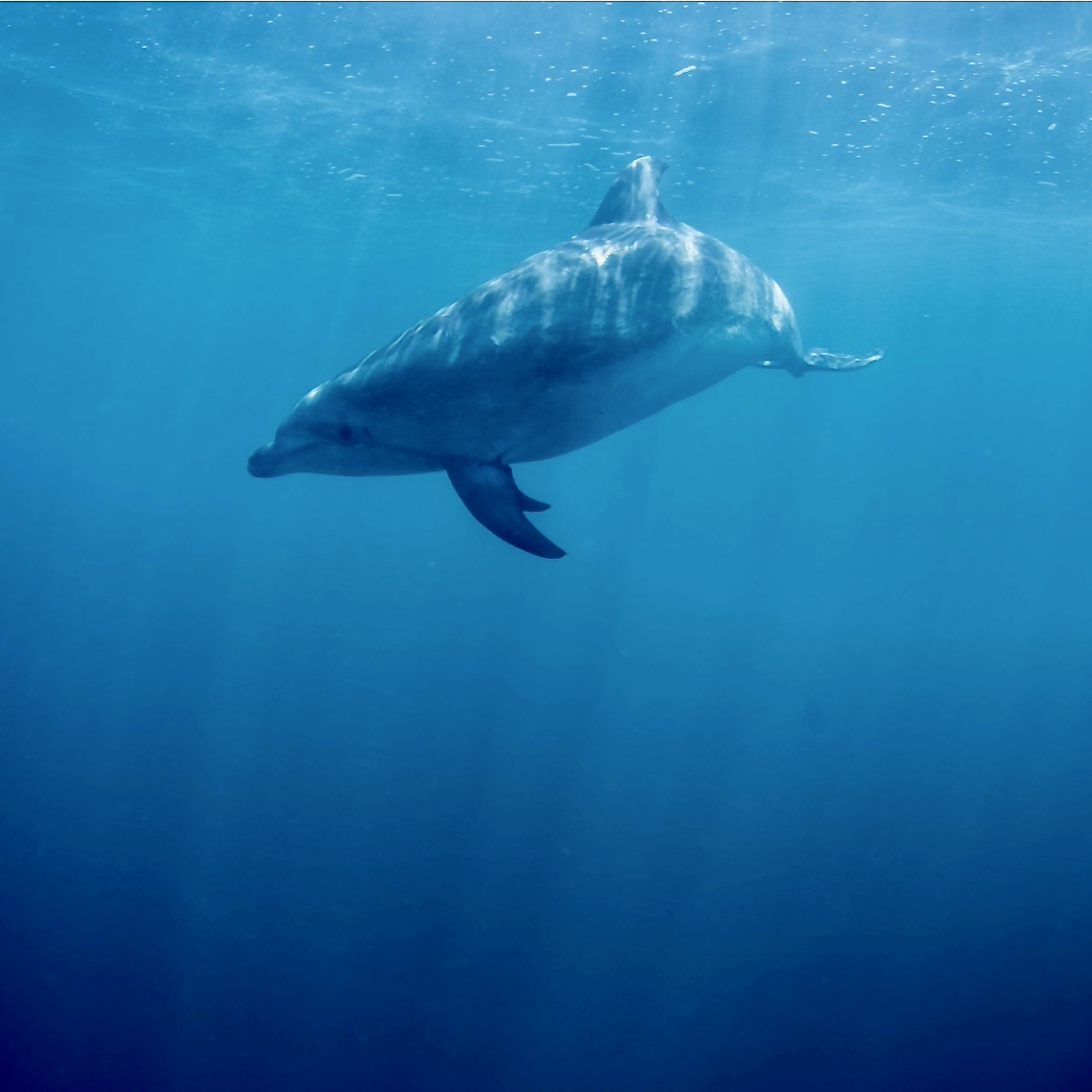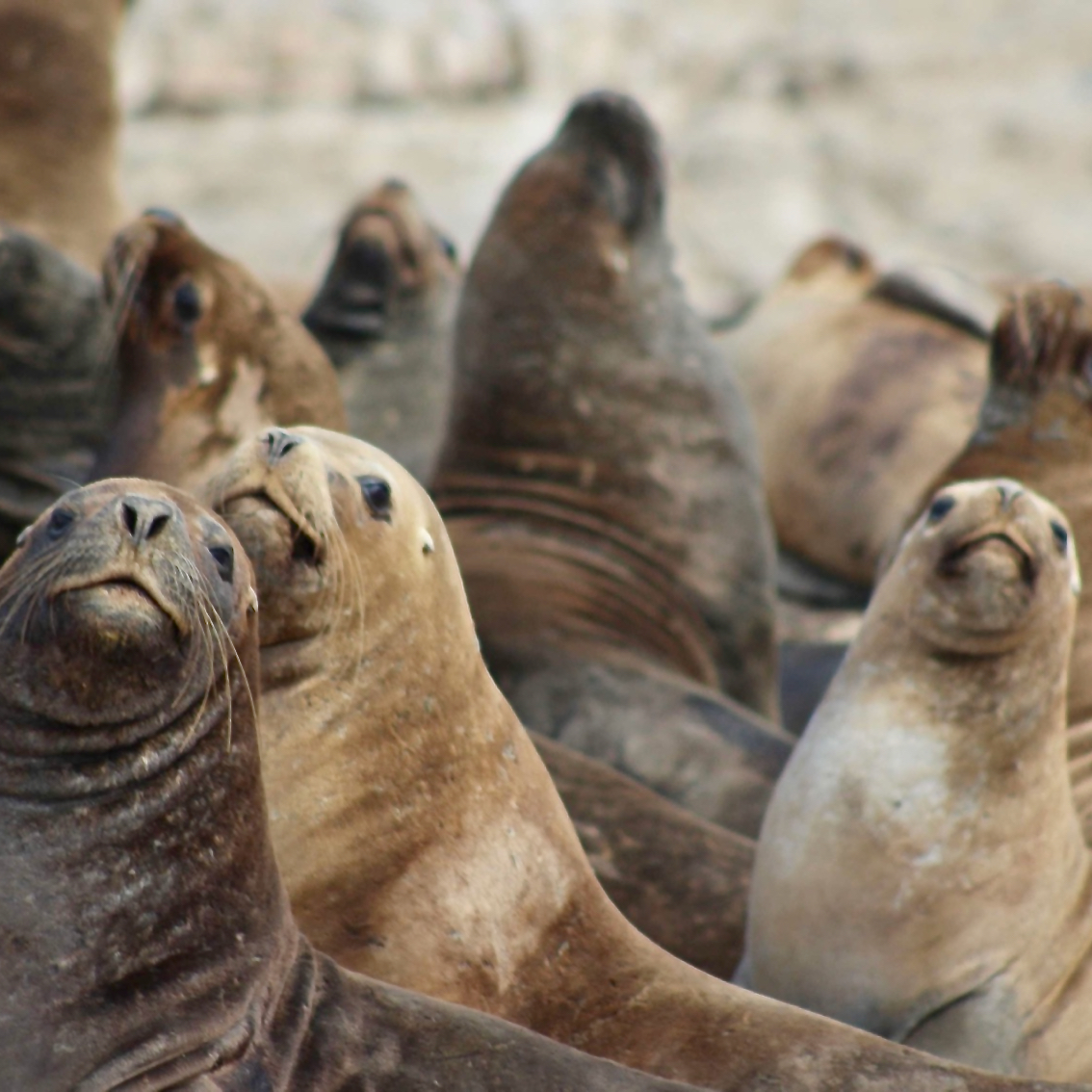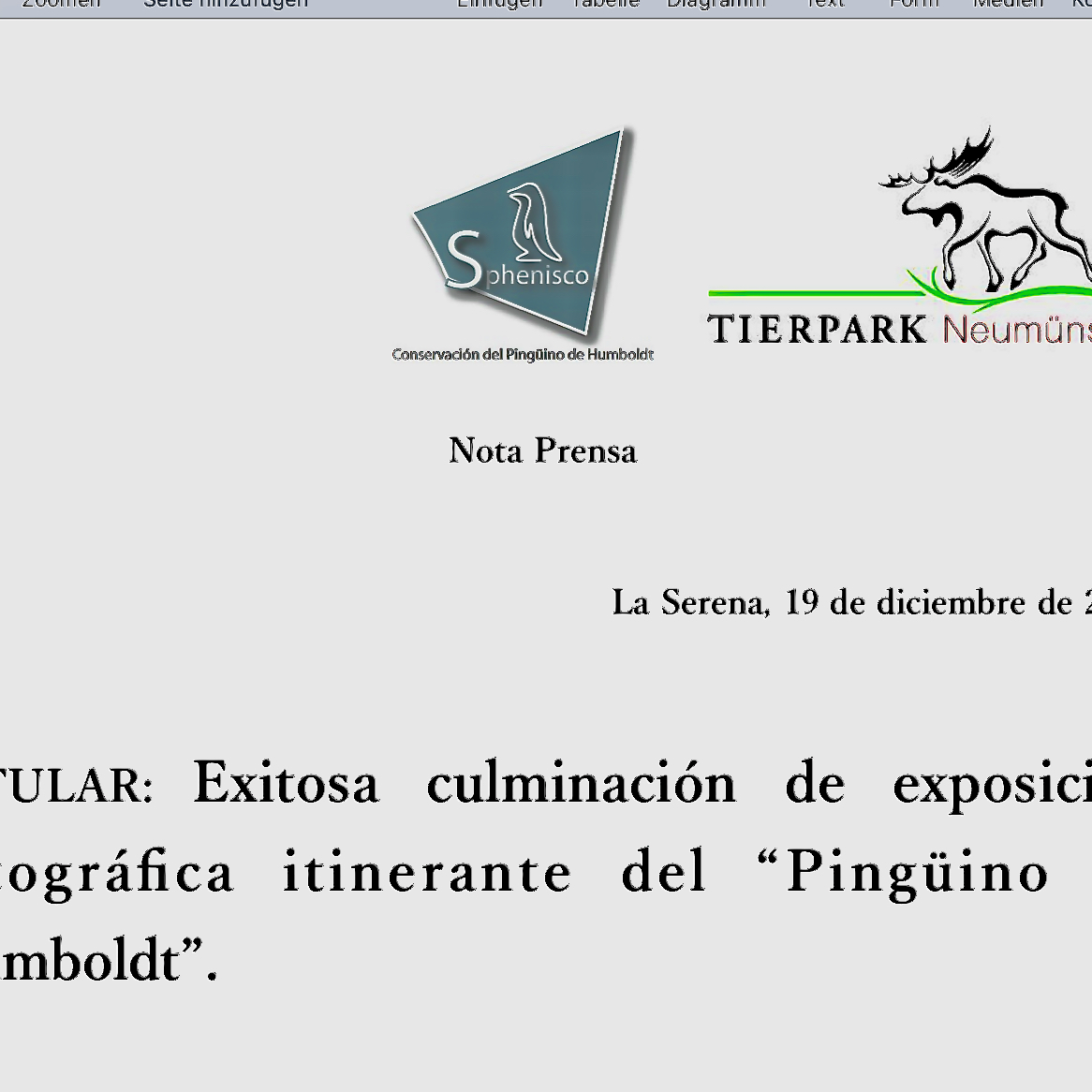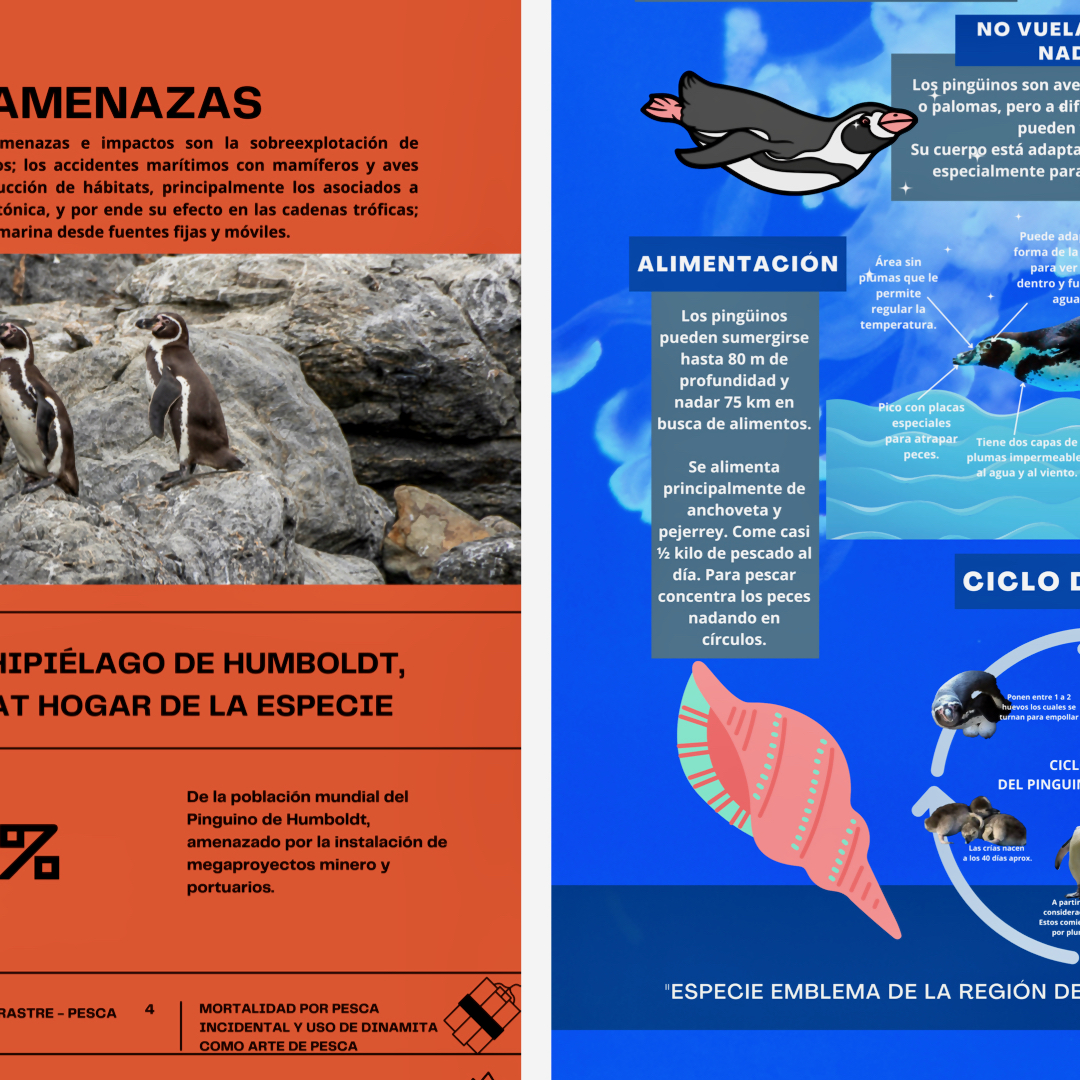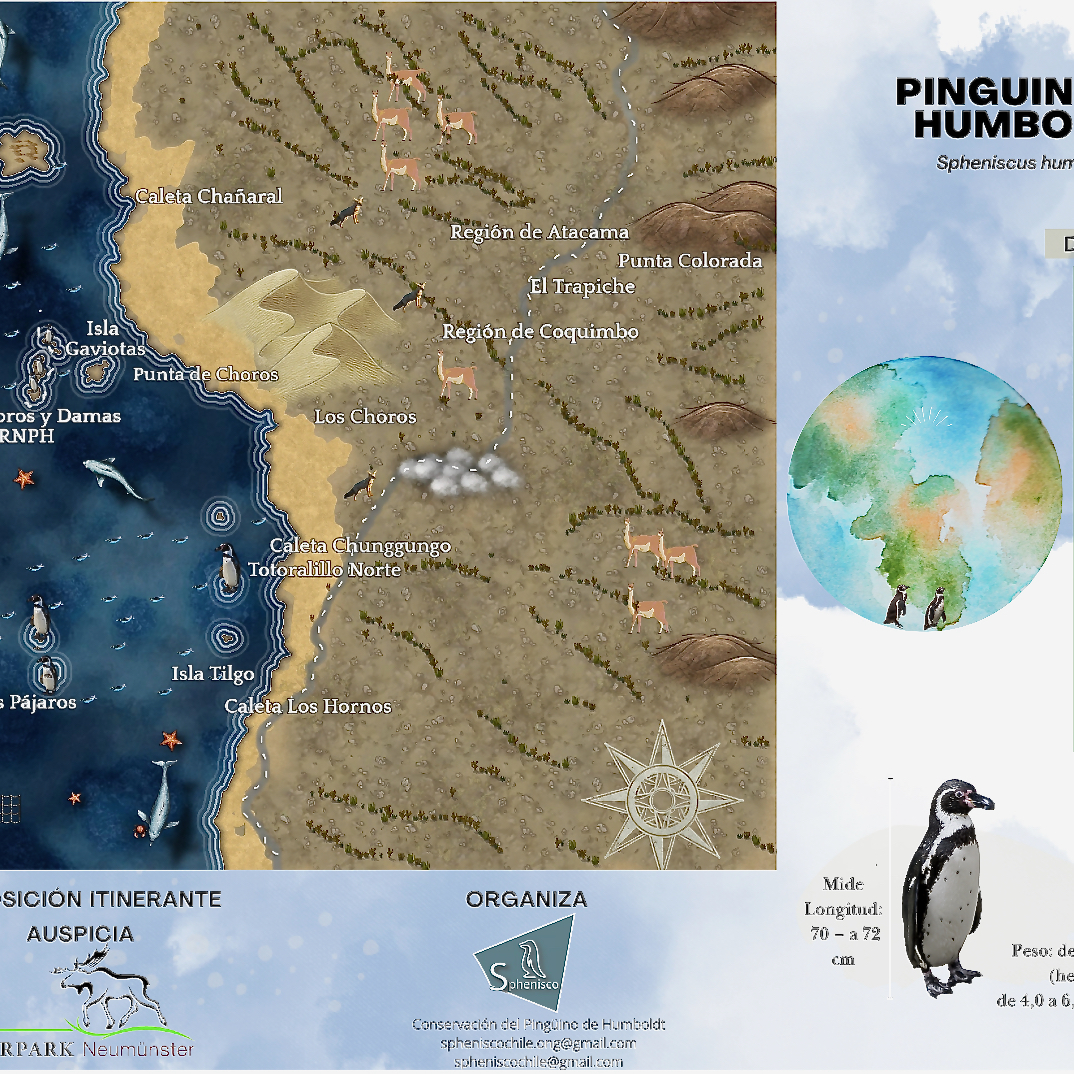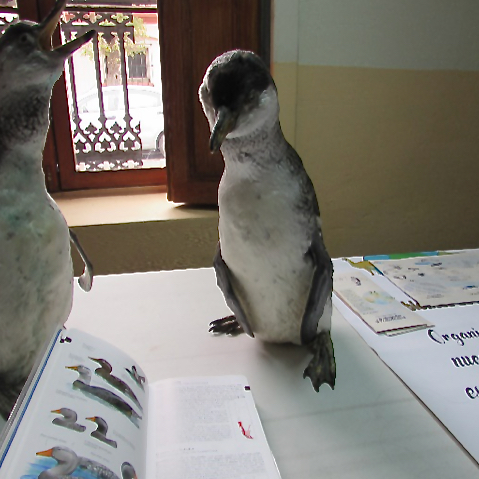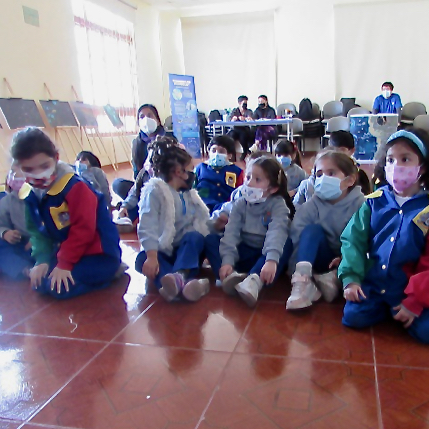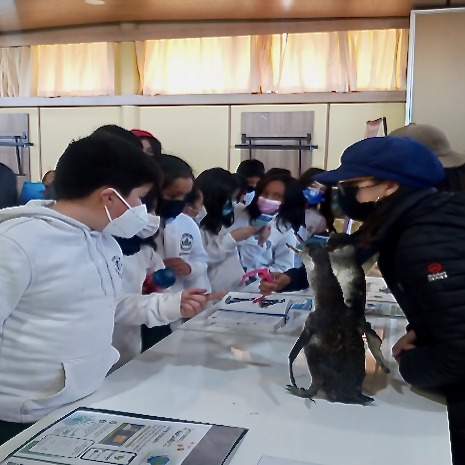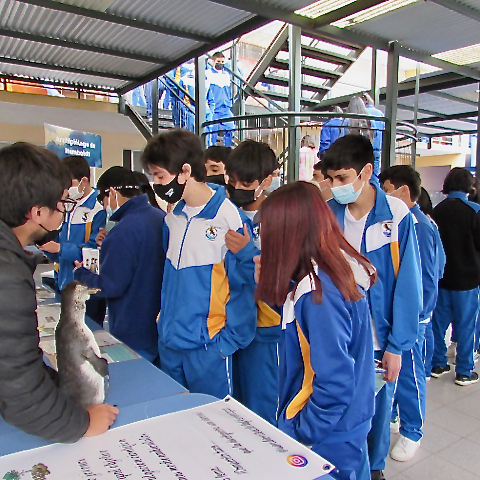La Serena, 19 December 2022.
The Coquimbo region is home to at least 80% of the world's population of the Humboldt penguin, a very special bird species that lives on the desert coast of Peru and Chile. In order to inform students about the threat to this penguin species and its habitat, SPHENISCO initiated and designed an exhibition with photos of the animals and their breeding grounds. The project was funded by the Neumünster Zoo.
The travelling exhibition started on 25 April at the Javiera Carrera School in La Serena and was part of the worldwide activities for World Penguin Day. Since then, the exhibition has traveled through 10 primary and secondary schools to raise awareness of the fact that a species emblematic of the Coquimbo region, the Humboldt Penguin, is threatened with extinction, and that its main breeding grounds are in the Coquimbo and Atacama regions, an area known as the "Humboldt Archipelago".
The "Exposición fotográfica" consists of 16 photographs in the format 40 x 60 cm, which are presented on easels; four informative rollups about the Humboldt penguin, its habitat and the causes of threats; and a rollup for World Penguin Day, which shows all five penguin species occurring in Chile. The focus was on characteristics of the penguin species, their role in the food chain, and human and natural threats.
The exhibition was complemented by a stand from the collective "Simbiontes de Lafken" from Maipu, a group of students and graduates of the Universidad Católica del Norte, Coquimbo (UCN). The group showed prepared (mounted) penguins and microscopes for teaching.
Pupils, students, teachers, and part of the school management actively participated in activities around the exhibition, felt called upon and motivated to stand up for the protection of the Humboldt penguins and the preservation of their habitat. They called for the continuation of the traveling exhibition and expect the tour of schools in the Coquimbo region to continue in 2023.
Currently, teachers and students have begun to address and work on the protection of nature and its resources in different school classes, using the example of the Humboldt Archipelago in their teaching.
Given the continuing effects of climate change, we must all act now to protect ecosystems. It is therefore sensible and necessary to set accents in environmental education in schools at an early stage and thus create awareness.
W.K.
Note
(1) Photo credits of the travelling exhibition: Cesar Villarroel, Gerardo Cerda, Alejandro Simeone.
(2) The article is based on a press release by Karen Quezada dated November 24, 2022
translated by Erich Greiner



